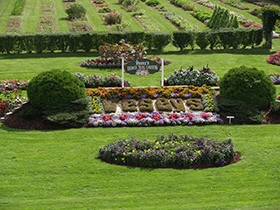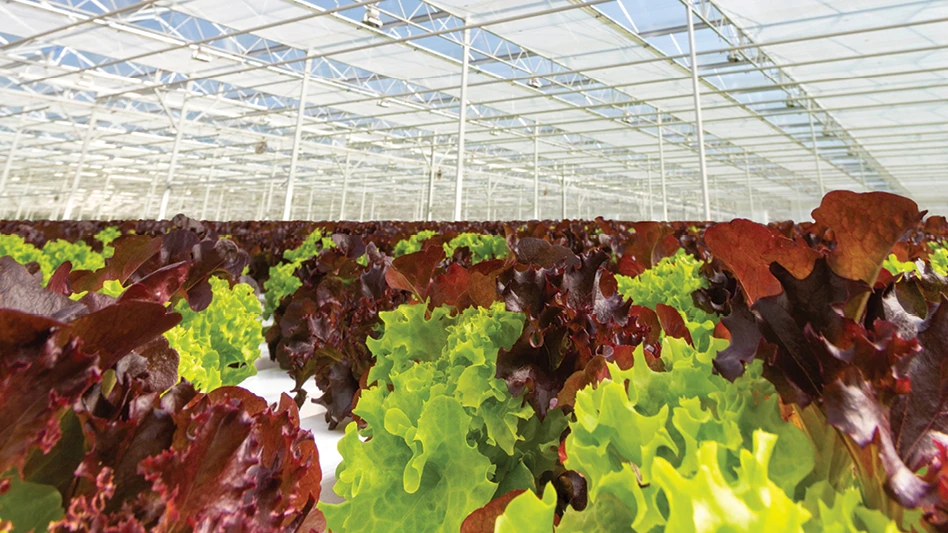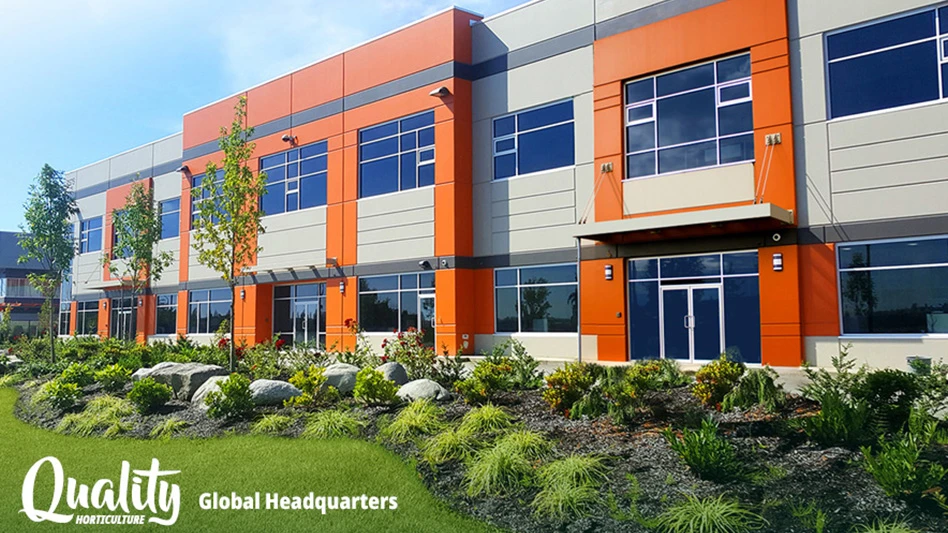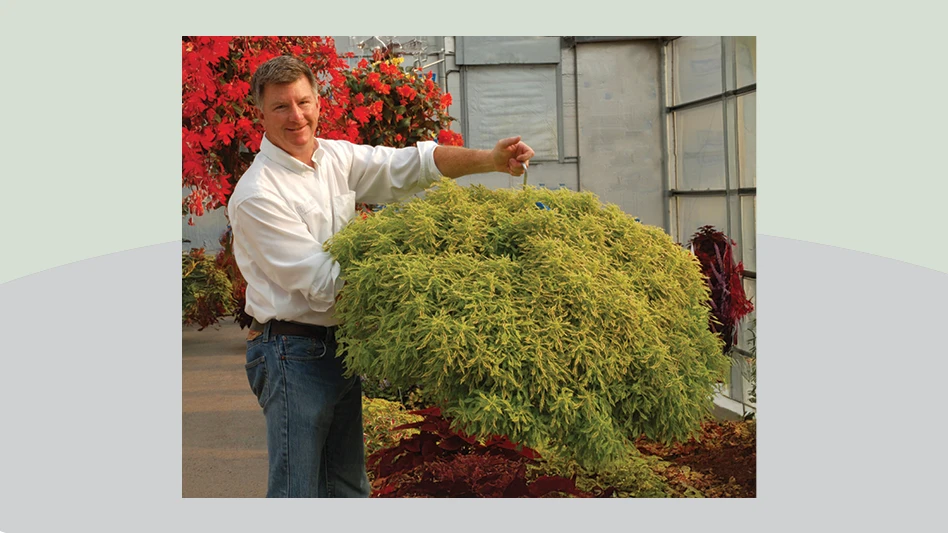
 All-America Selections celebrates its 80th anniversary this year, and as part of the celebration, Greenhouse Management will interview a different AAS judge each month to talk about how he or she runs his or her business and what AAS means to them. This is part eight of the 12-part series.
All-America Selections celebrates its 80th anniversary this year, and as part of the celebration, Greenhouse Management will interview a different AAS judge each month to talk about how he or she runs his or her business and what AAS means to them. This is part eight of the 12-part series.
During the summer, visitors are a common site to Veseys Seeds in York, Prince Edward Island, Canada.
 Veseys' flower trial Veseys' flower trial |
“Our trial program is a good reason for people to come in and walk through our flower gardens and vegetable gardens,” says Angus Mellish, seed manager for Veseys. “This time of year there’s always people walking around looking at those trials. That reinforces to them the work that we do to make sure they have the best varieties, and anytime you can bring people on to the property, that’s an opportunity to sell them something.”
Veseys not only trials for All-America Selections, but it also conducts extensive trials for the products it sells to customers. At any given period, between flower and vegetable trials, the company has between 800 and 1,000 varieties in trials.
“We’re primarily focused on a lot of short-season home garden customers and commercial growers as well,” Mellish says. “A lot of times, new varieties are developed with really short season areas we work in in mind, so for us, a trial program is key.”
Veseys’ trial program can last a long time. Typically products are trialed for at least a couple years.
“Years can make a difference,” he says. “Last year it rained seven times every week, and things never dried out, so we saw a lot of things that stood up to wet years. This year has been really dry, so we have a good idea of what will stand up in a dry year.”
But if something is such a step above anything else, it may be offered to customers after a year.
Once the Veseys team sees something that has potential, they share it to make sure.
“We’ll often get it out to two or three of our commercial growers that we trust and know that they’re going to look after it well, and they’ll give us their feedback as to how the varieties are performing for them,” he says. “The more of that information we get, the better.”
If you don’t have a trial program and you’re interested in starting one, Mellish suggests you find an area to first focus on instead of trying to do everything at once.
“Every year we try to pick a few key areas that are more of a priority,” he says. “We may know we’re losing a few key varieties in one area, so we’re going to focus a lot on those varieties — that may be an interesting place to start. Or, ‘Here’s an area where we think we’re weak, and we want to see a lot of new varieties.’ Get some samples and get them going. That’s a good place to start as opposed to trying to do it all.”
For more: Veseys Seeds, www.veseys.com
|
Veseys and AAS Angus Mellish has been involved in the AAS trials at Veseys Seeds since he started with the company. He began doing the trial work for two or three years, and then he took over the judging, which he’s been doing for about seven years now. Greenhouse Management spoke with him about the importance of AAS. Why is AAS important to the industry? What do you enjoy personally about being a judge? What tips can you give others who may be interested in getting involved in AAS? |

Explore the September 2012 Issue
Check out more from this issue and find your next story to read.
Latest from Greenhouse Management
- Happy holidays from the GIE Media Horticulture Group!
- North Carolina Nursery & Landscape Association announces new executive vice president
- Plant Development Services, Inc. unveils plant varieties debuting in 2025
- Promo kit available to celebrate first National Wave Day on May 3
- Applications now open for American Floral Endowment graduate scholarships
- Endless Summer Hydrangeas celebrates 20 years with community plantings
- Invest in silver
- Garden Center magazine announces dates for 2025 Garden Center Conference & Expo





